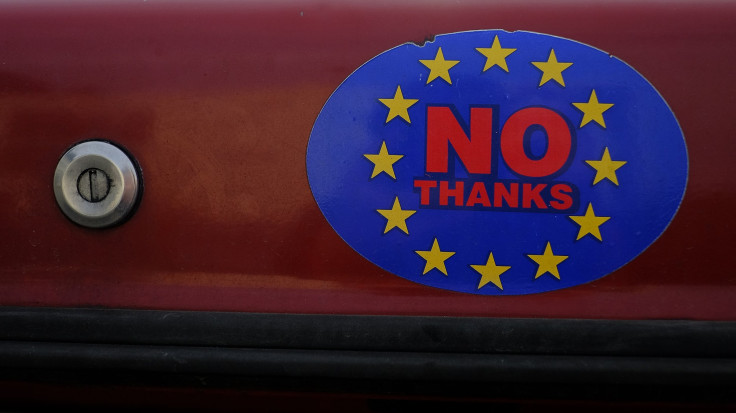UK Brexit Vote: A Month’s Salary Would Be Lost With Leave Vote, Warns OECD

How much would a British exit from the European Union cost the average worker? An estimate from the Organization for Economic Cooperation and Development (OECD) said Wednesday workers would lose a month’s pay by 2020 with further loses expected.
“Brexit is like a tax, equivalent to missing out on about one month’s income within four years, but then it carries on to 2023, 2030,” said Ángel Gurría, the OECD’s general secretary, speaking with the BBC. “There is a consistent loss … That tax is going to be continued to be paid by Britons over time. What they would have had in their pocket to spend, they would not have. Therefore it is as real as tax.”
The OECD has forecast lower economic growth for the British economy should voters decide June 23 to leave the European Union. Chancellor George Osborne said Britain’s gross domestic product growth estimate had fallen from 0.6 percent to 0.4 percent as investments and infrastructure projects slow ahead of the June vote.
Gurría, who has headed the 34-nation organization since 2005, argued leaving the EU would be a “bad decision” for Britain. The OECD estimated Britain’s GDP would be 3 percent lower in 2020 if a leave vote passes. The drop in economic growth could hit 5 percent by 2030 with the OECD estimating it would cost households approximately $4,660 on average.
“This is not wishful thinking – which we believe that the Brexit camp in many cases has been assuming,” Gurría said. “There is absolutely no reason why you would get a sweeter trade deal than you already have, no reason why you would have a sweeter investment deal.”
U.K. Independence Party leader Nigel Farage accused the OECD and the International Monetary Fund of employing former politicians who had mostly failed in their own work. Campaigners urging Britain to leave the EU said the OECD’s forecast did not take into account new trade deals that would also impact the economy.
“That is just absurd,” said economist and Leave campaigner Andew Lillico. “One of the main reasons we would leave the EU is in order to do new trade deals with the rest of the world, with Japan, Australia and other countries.”
Polls show a tight race before the June vote. An ORB poll conducted for the Telegraph released Tuesday found that 51 percent of definite voters favored Britain remaining in the EU while 46 percent support a British exit. Three percent of voters remained undecided. The poll surveyed 800 people from April 20 to 24.
© Copyright IBTimes 2025. All rights reserved.






















